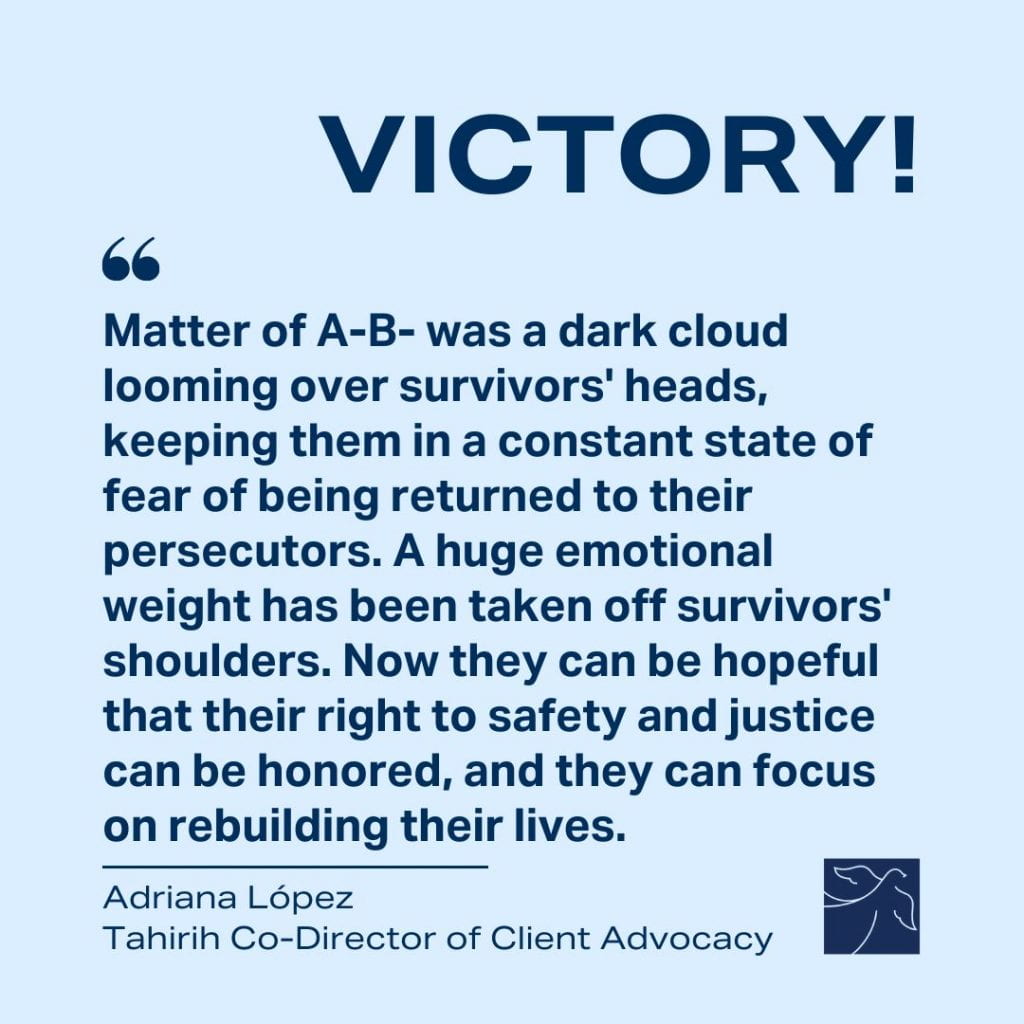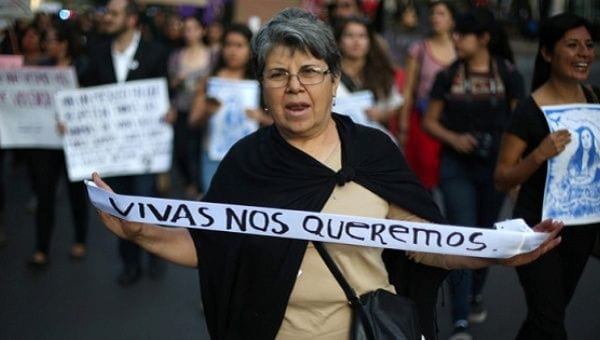This post is a guest blog written by Susan McLoughlin from the Desai Foundation.
In June of 2021, U.S. Attorney General Merrick Garland reversed a ruling that was made under the Trump administration in 2018 by then-acting Attorney General Jeff Sessions. This ruling had been inflicting extremely restrictive policies against asylum seekers, making it nearly impossible to be granted asylum on the basis of domestic abuse or gang violence. Garland’s reversal was a huge win for domestic violence-based asylum seekers and although there’s no doubt the asylum process is still extremely difficult, this essentially legitimizes the reality that fleeing from domestic abuse is a valid reason to be granted asylum.
Jeff Sessions’ Decision
In 2018, Jeff Sessions used what’s known as “referral authority” to refer the Matter of A-B- to himself. This was the case of a woman who was fleeing El Salvador after experiencing nearly 15 years of severe domestic violence perpetrated by her husband. Essentially, Sessions’ decision in the case of A-B- had two main results: One was that it overturned the precedent established in an earlier case, which had been the only case where a woman was granted asylum on the basis of domestic abuse. Although women fleeing from domestic abuse had been granted asylum before, it had always been granted on the grounds of gender. Additionally, he ruled that most cases involving non-state actors will not meet the requirements for asylum and that asylum applicants must prove that the government they’re fleeing was “completely helpless” in efforts to protect them.
As dangerous as these claims were, since they cast doubt over the future of all domestic violence-based asylum claims, it didn’t affect much from a legality perspective, and the claims were predominantly baseless. The requirement that someone must prove that the government they are fleeing is “completely helpless” is not part of asylum law and never has been.
Jump to June of 2021, about 5 months into the Biden administration, Attorney General Merrick Garland vacated this extremely restrictive ruling. Yet, as much of a victory as this may be, it still doesn’t combat the issue at its core. There continue to be alarmingly high rates of sexual and gender-based violence as well as femicide across Central America, which is a major driver of migration to the US – and this has only worsened throughout the COVID-19 pandemic.

Violence in the Northern Triangle
An increasing number of America’s migrants and refugees are coming from Central America’s “Northern Triangle,” which consists of Guatemala, El Salvador, and Honduras, with an estimated 709,000 people leaving the region from October 2018 through September 2019. Although many factors are driving people to flee, including government corruption, failing economies, and poverty, there is no doubt that violence against women is one of the major factors. (Note: A migrant is someone who chooses to move to improve their life, while a refugee is someone who flees armed conflict or persecution.) A study conducted by the University of Washington found that between 2011 and 2016, the number of people migrating from the Northern Triangle who cited violence as their reason for fleeing more than doubled, increasing from 33.7% to 71.2%. While both men and women experience high rates of violence in this region, especially with so much gang activity, this study also showed that when controlling for gender, more women cited “fleeing violence” than men.

Femicide – which the WHO defines as the “intentional murder of women because they are women” – has become rampant throughout the Northern Triangle, with Honduras and El Salvador having some of the highest rates of femicide in the world. What is possibly even more shocking is that in 2014, the UN reported that 95% of cases involving sexual assault or femicide in Honduras were never investigated. This just goes to show how little is being done to protect women and girls from this ever-present violence. We also know that although there have been high rates of gender-based violence (GBV) in the Northern Triangle for decades, the pandemic has only worsened this problem. In El Salvador, there was a 70% rise in cases of GBV, and in the first four months of 2021, at least 160 women in Guatemala were killed and there were more than 20,000 complaints of violence against women.

What Has Been Done Already?
In March, Ricardo Zúñiga was named the U.S. Department of State’s Special Envoy for the Northern Triangle. His role is essentially to be a liaison between the U.S. and Northern Triangle governments and to implement Biden’s $4 billion plan to address root causes of migration in Central America. Part of this $4 billion plan does address domestic violence, and Biden has claimed that this will ensure, “access to justice and support services for victims of domestic violence.” But, we also know that combating GBV has to be multi-pronged, and you need to examine societal gender roles and the roots of gender inequality to properly attack the symptom, which is violence. Although fueling money into support services for victims of domestic abuse is extremely important, I also worry that this is just a band-aid solution and won’t necessarily decrease the instances of gendered violence that are driving so many women in the Northern Triangle to leave.
Conclusion
Although comprehensive and inclusive asylum policies are absolutely critical, at the end of the day, most people don’t want to leave their homes in the first place – which is why we should be combatting the root problems that are forcing so many to flee. There is sufficient evidence that proves gender-based violence is driving many people to flee the Northern Triangle, which is geographically where an increasing number of migrants and refugees in the U.S. are coming from. So, moving forwards, tackling GBV in this region must be prioritized so that women and girls are not forced to leave everything behind only to be met with the excruciating process that is seeking asylum in the U.S. But, in the meantime, we must not forget our obligation to protect these survivors.

Susan McLoughlin is a Special Assistant to the President at the Desai Foundation – a nonprofit that works to empower women and children through community programs and elevate health and livelihood in India & the U.S. She holds a BA from American University, where she majored in International Studies and minored in Women’s, Gender, and Sexuality Studies. Susan has professional experience in the field of gender & development as well as gender & international security. Additionally, she focused on the South Asian region within her undergraduate studies and has studied/worked abroad in India, where she pursued research related to domestic violence.

Be First to Comment